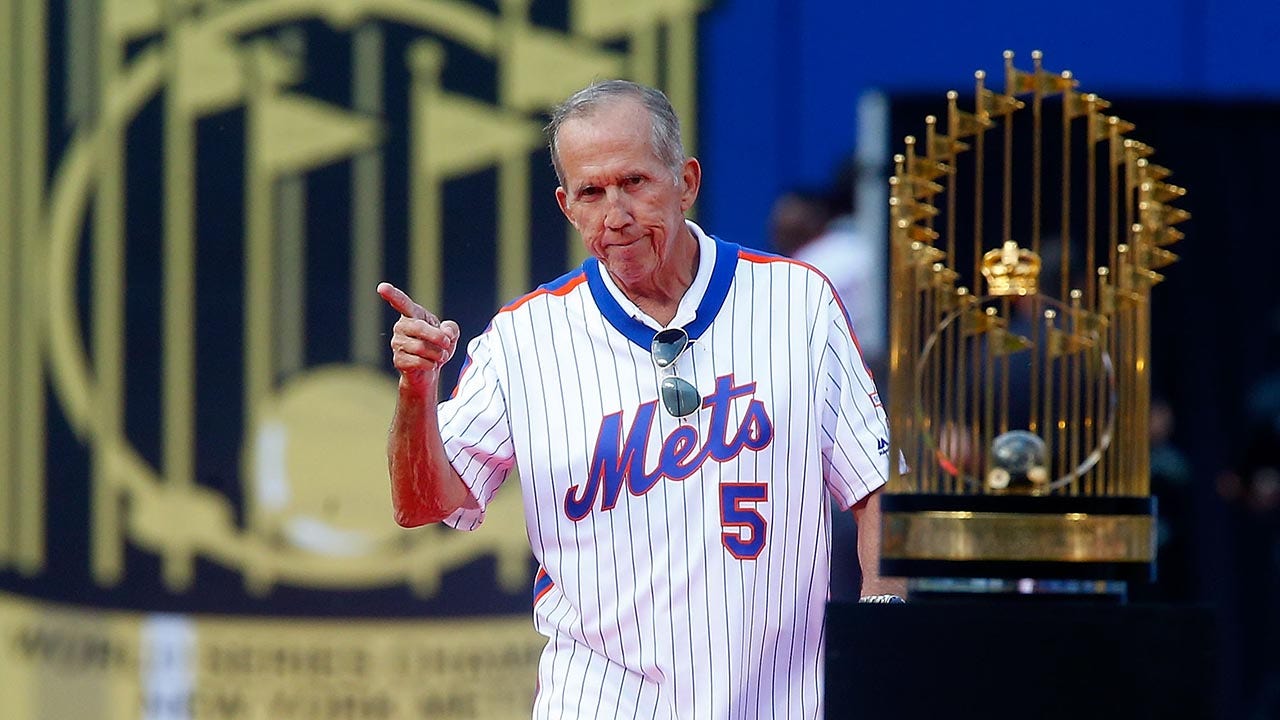Davey Johnson, the innovative and outspoken manager who guided the New York Mets to their improbable 1986 World Series championship, has died. The 82-year-old baseball legend, known for his sharp analytical mind and success both as a player and skipper, passed away Friday in a Sarasota, Florida, hospital after a long illness, according to longtime Mets public relations representative Jay Horwitz. Johnson’s death marks the end of an era for a figure who bridged generations in Major League Baseball, from the powerhouse Orioles teams of the 1960s and ’70s to the rowdy, triumphant Mets of the ’80s.
Johnson’s passing was first announced via a post on X by Horwitz, who noted that Johnson’s wife, Susan, shared the news. “Davey was a world-class manager,” said Washington Nationals owner Mark Lerner in a statement, reflecting on Johnson’s tenure with the team. “I’ll always cherish the memories we made together with the Nationals, and I know his legacy will live on in the heads and minds of our fans and those across baseball.” Tributes poured in quickly from former players and colleagues, underscoring his profound influence on the game.
Born David Allen Johnson on January 30, 1943, in Orlando, Florida, he grew up in Texas and earned a mathematics degree from Trinity University, which informed his pioneering use of data in baseball decisions—long before sabermetrics became mainstream. As a player, Johnson was a slick-fielding second baseman who spent 13 seasons in the majors from 1965 to 1978, primarily with the Baltimore Orioles. He earned four All-Star nods, three Gold Gloves, and contributed to World Series wins in 1966 and 1970 with Baltimore, where he played alongside legends like Brooks Robinson and Frank Robinson. Later stints with the Atlanta Braves (where he hit 43 homers in 1973), Philadelphia Phillies, and Chicago Cubs followed, along with two seasons in Japan’s Nippon Professional Baseball league. His playing career stats included a .257 batting average, 136 home runs, and strong defense that made him a key part of the Orioles’ dynasty.
Transitioning to management in 1984, Johnson took over a struggling Mets team that had gone 68-94 the previous year. Under his leadership, New York transformed into a powerhouse, winning 90 or more games in each of his first five seasons—a major league first. The pinnacle came in 1986, when the Mets clinched the World Series in a dramatic seven-game series against the Boston Red Sox, highlighted by the infamous Bill Buckner error in Game 6 and a 108-win regular season. Johnson managed the Mets to another National League East title in 1988 before tensions with general manager Frank Cashen led to his firing in 1990. His 595 wins with New York remain a franchise record.
Johnson’s managerial career spanned 17 seasons across five teams: the Mets, Cincinnati Reds, Baltimore Orioles (where he returned and won the 1997 AL Manager of the Year after a division title), Los Angeles Dodgers, and Nationals (earning NL Manager of the Year in 2012 after their first division crown since 1981). He amassed 1,372 wins, a .562 winning percentage (sixth-highest among managers with 1,300-plus wins), and 25 postseason victories. Known for his brash style and clashes with authority, Johnson often prioritized player empowerment and analytics, as noted by former Mets outfielder Darryl Strawberry: “His ability to empower players to express themselves while maintaining a strong commitment to excellence was truly inspiring.” Hall of Famer Jim Palmer, a former Orioles teammate, called him “a friend, teammate and confidant.” Ryan Zimmerman, who played under Johnson in Washington, added, “He knew how to get the best out of everyone — on and off the field.”
Off the field, Johnson was a multifaceted man: a scratch golfer, licensed pilot, scuba instructor, and real estate investor. His forward-thinking approach, influenced by Orioles manager Earl Weaver, helped shape modern baseball strategy. Former Nationals GM Mike Rizzo described him as “a Hall of Fame caliber manager with a baseball mind ahead of his time.”
Johnson’s death leaves a void in baseball lore, particularly for Mets fans still cherishing that 1986 miracle—the franchise’s last title. It may prompt retrospectives on his innovative tactics and tributes from MLB, potentially including Hall of Fame considerations for his managerial record. As teams reflect on his legacy, expect ceremonies or honors in the coming seasons to celebrate a man who won rings as both player and manager.
Davey Johnson’s life was a grand slam of achievements, from World Series triumphs to trailblazing management. His passing reminds us of the enduring impact one person can have on America’s pastime—may his strategies continue to inspire the next generation of ballplayers.
